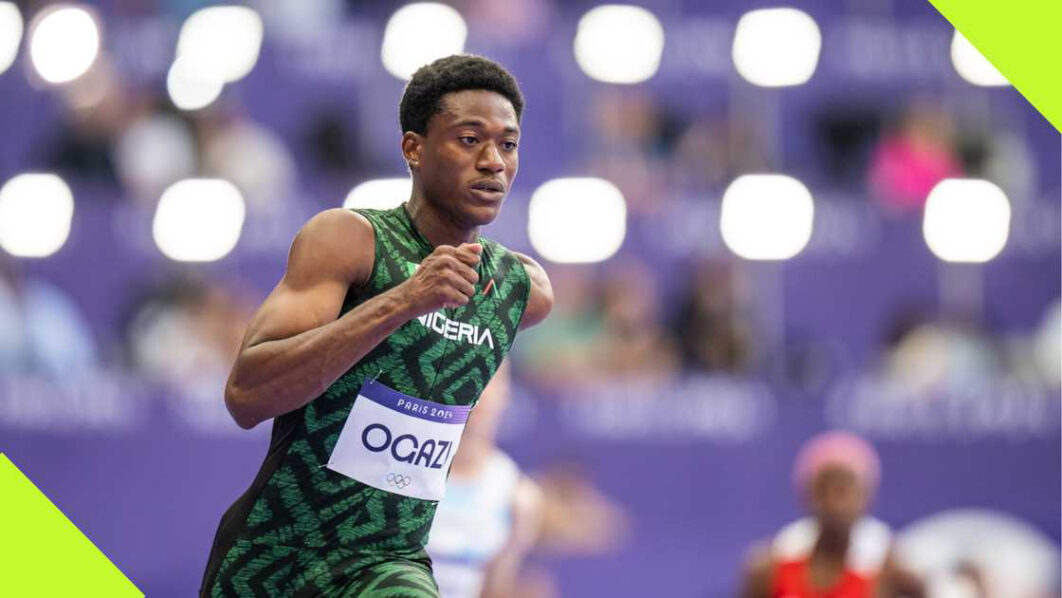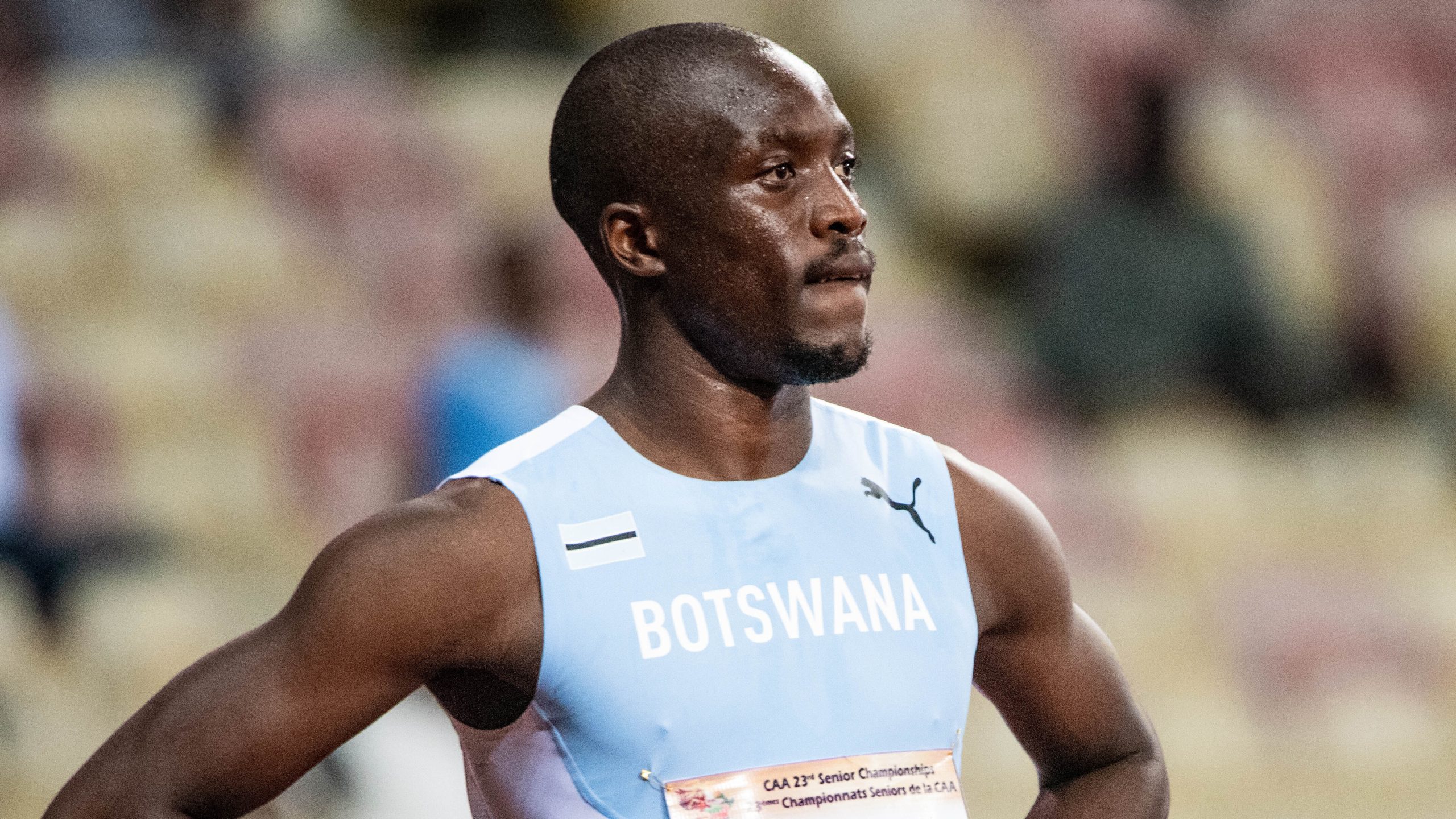
Nigeria’s failure to win a medal at the Paris 2024 Olympics must have taught the country some hard lessons. Besides canvassing early preparation for the Los Angeles 2028 Games, age falsification is another ghost stakeholders want exorcised from the country’s sporting milieu, especially starting at the 8th National Youth Games in Asaba, GOWON AKPODONOR reports.
The world witnessed what seemed like a change of baton at the just-concluded Paris 2024 Olympic Games, where young guns outclassed established stars at the globe’s biggest sporting fiesta. Just like the European 2024 Championship, where teams with youthful players were dominant, Paris 2024 served notice regarding the place of young blood in energy-sapping international competitions.
For instance, the men’s and women’s 100 metres races, which were dominated by the elegant Marcel Jacobs of Italy, Fred Kerley of the United States, Canada’s Andre de Grasse, and the Jamaican trio of Elaine Thompson-Herah, Shelly-Ann Fraser-Pryce, and Shericka Jackson, as well as Cote d’Ivoire’s Marie-Josee Ta Lou respectively, at the Japan 2020 Games, saw a new crop of runners taking the limelight.
This crop of new stars led by Noah Lyles of the United States and Kishane Thompson of Jamaica, as well as St Lucia’s Julien Alfred, showed that mother time will always call to signal an end to what seemed like an unending dominance.
In the Nigerian camp, as much as observers attributed the country’s biggest hopes, Tobi Amusan and Ese Brume’s inability to mount the podium to other causes, many hinged the stars’ failures on the inevitable decline that awaits every athlete after many years of dominance in a particular sport.
As it was in athletics, so it was also in wrestling, where the country’s hitherto medal sure-bets, Blessing Oborodudu and Odunayo Adekuoroye failed to reach the finals of their respective events.
The Olympic Games held every four years throw up new stars at every edition, and many countries always plan to replace their top performers even when these champions are still at the peak of their careers. This is because it is rare to see one athlete excelling at the Olympics for three editions, which represents 12 years of top performance.
To guide against being caught unawares, most developed countries plan a development programme that throws up replacements for their aging stars. These young athletes are groomed through age-grade competitions to become top stars.
Unfortunately, in recent times, such has not been the case with Nigeria, where officials still field overage athletes in youth championships in their bid to win immediate gratification.
Over the years, only a few Nigerians, who have won world junior championships, have gone on to make their marks at the senior championships where it matters most.
Already, there are insinuations that the country has once again peopled its team to the forthcoming World Junior Championships with over-aged athletes when the event would have served the country better if age-appropriate athletes were picked for the competition.
The United States topped the medals table at the Paris 2024 Olympics with a total of 126 medals, and of that number, athletes from four California universities won 89 medals. Top on the list was Stanford University, whose athletes alone won 39 medals, which was more than the number of medals won by seven countries at the Games.
In Paris, about 1,000 former, current, and incoming student-athletes represented the National Collegiate Athletics Association’s schools (NCAA) in 100 different countries, with 272 of them capturing 330 medals for 26 countries.
These, perhaps paints a clearer picture that winning medals at the Olympics rests mainly on the shoulders of young athletes. Some Nigerians believe that one major factor that contributed to the country’s failure at the Paris Olympics was relying on old athletes to deliver at the Games.
“l was shocked to see that the girl, who wrestled Blessing Oborodudu in the semifinal of her event is just 20 years, while Blessing is 35 years,” the proprietor of Cable Sports Academy, Edwin Onovwotafe told The Guardian, adding: “We have to change our old ways of doing things and we must catch our athletes young, back them up with good funding and preparation for the Olympics.”
Over the years, the issue of age falsification among athletes has been a recurring decimal in Nigerian sports. From football to athletics, swimming, wrestling, table tennis, weightlifting and boxing, among others, the rate at which young Nigerians cut their ages to win competitions should be a cause for concern among those leading Nigerian sports.
At the end of the 7th National Youth Games in Asaba, Delta State in 2023, the Chairman of Edo State Sports Commission, Olympian Yusuf Alli, threw a challenge to parents and sports administrators across the country to always see the National Youth Games as an avenue to discover young talents, who would be groomed into the pool of athletes that will fly Nigeria’s flag at international competitions in nearest future.
“People should always see the NYG as Games for children under the age of 15. This will help our sports to improve fast. I always tell people to emulate Tobi Amusan because she came to the limelight in 2012/2013. What that means is that Tobi was discovered at the right age. If she had cut off six or seven years from her real age, probably by now, Tobi would have played herself out of relevance. In sports, competing with the true age matters a lot,” Alli stated.
By the next Olympics in Los Angeles in 2028, Tobi Amusan will be 31 years old, while long jumper Ese Brume will be 32. It might take divine intervention for any of them to win a medal for Team Nigeria.
For coach Onovwotafe, a product of the National Institute for Sports (NIS) in Lagos, the coming 8th National Youth Games in Delta State is the perfect ground to breed possible replacements for the likes of Amusan, Brume and Oborodudu.
To tackle age cheats in Nigerian sports, and allow the National Youth Games to live up to its responsibility, some stakeholders in the sports family, including sports journalists have suggested various ways to the Federal Government.
Seasoned sports journalist, Maxwell Kumuyi said: “We can reduce age cheating significantly, but I doubt if it can be eliminated. Our faulty educational system, poor parenting, and the get-to-the-top quickly syndrome are also partly responsible for cheating, and it is killing our sports slowly.”
On his part, veteran athletics writer, Ben Efe, said: “Kids not being in school is a fundamental problem that must be solved by the governments at all levels. They are denying kids a constitutionally guaranteed right to basic education. I have seen good examples of kids who excel in sports and they are in schools. One such is Ronke Akanbi, a long-distance runner. She is in a secondary school on scholarship due to her athletic prowess. Any kid discovered to have sports talent should be in school. During my school days at Baptist High School, Eku, I knew a lot of kids who were given automatic admissions because of their talents. Those were the days of real school sports contests. So, there has to be a holistic approach if we need to develop sports like every other serious sporting nation.”
For Fred Edoreh, who is a Special Assistant on Media to Governor Sheriff Oborevwori, every participant at the National Youth Games does not necessarily have to be in school.
“While all children need to be in school, we must recognise that we have over 10 million out-of-school children in Nigeria for various unfortunate reasons, ranging from poverty to parental and government negligence. By school, I mean formal education.
“I do not agree that they should also be denied the opportunity of exploring their possible talents to pursue careers in sports. I have seen kid mechanic apprentices who are not going to, or who dropped out of formal schools, but are good in sports. We can do everything necessary to curb age cheating, but we must also realise that sports should promote inclusiveness. No one should be left out,” Edoreh stated.
Oluchi Agbagwu Jovial, known as SportsJovial said: “Painfully, we call it sports age, which gives some of our youths the edge in kindergarten competitions but fails when it matters the most at senior cadres. But those expecting us to have an age-cheat-free youth game may be embarking on a wild goose chase because of its unworkability in Nigeria for several reasons.
“Firstly, how do you determine the true age of an athlete whose parents claim he/she was born in a local maternity home? What if the said parents approach the census office for a birth certificate with their date to enable their child to participate in the National Youth Games?
“Conversely, in a technologically driven world, once a child is given birth to, it is fed into a system that will be preserved for life, which is why those countries have accurate data on their population. Over there, citizens’ ages do not constitute a secret but are open for all to see. And because theirs is an open society, the citizens have the moral obligation to report to appropriate authorities, any attempt to cheat.
“Have you wondered why we have dominated the FIFA U-17 championship, but are a shadow of our prowess at the senior level? Yet, only a few states such as Delta, Lagos, and Edo have tried to play by the rules as in the National Youth Games. The future will always be theirs,” he stated.
One of the stars, who burst into reckoning from the National Youth Games a few years ago is United States-based sprinter Favour Ofili, who returned the country to the Olympics Games 200m final at the Paris 2024 Games.
Though, her efforts to improve the record as the second Nigerian after Mary Onyali to win an Olympics medal in the 200m event did not materialise in Paris, many Nigerians praised Ofili for her resilience in taking her youthful career to the Olympics finals. Ofili was the Most Valuable Athlete at the 2017 edition of the National Youth Games held in Ilorin, Kwara State.
Former national triple jump champion, Olu Sule, wants the government to come down hard on age-cheats at the youth games in Asaba. The NYG is open only to U-15 athletes, but over the years, some states have continued to parade athletes above the category thereby defeating the purpose of the competition. In some past editions, athletes who were screened out were later allowed back into the field to contest.
“The only way is to meet the defaulters with stiff penalties while rewarding those that play by the rules,” he stated. Sule, who discovered sprinter Kayinsola Ajayi who represented Team Nigeria at the Paris 2024 Olympics said: “We must also remove the winning culture of awarding medals or having a medals table. Rather, recognition and rewards should be given to states, who presented athletes within the age brackets and still won.”
Promising that the 2024 National Youth Games would be different from the previous ones in terms of featuring age-appropriate athletes, the Director General of Delta State Sports Commission, Festus Ohwojero, said: “One thing I have come to realise is the neglect of coaches by some sports administrators, who want to win and get rewarded by their state governments. The coaches are closer to the parents and if they are allowed to do their jobs, it will reduce age cheating to the barest minimum. But when some top sports administrators push aside the coaches and ‘buy’ athletes who were groomed by other states just to win the National Youth Games, they are doing the country a great disservice.
“Here in Delta State, we build our youth athletes from scratch. We give our coaches free hands to fish them out of schools with their real age. From there, the state government plays its role by awarding scholarships to those who deserve them.
“At the end of the 2023 edition of the NYG, over 23 youth athletes from Delta State got scholarships to various schools in the United States. Now, our governor wants us to deliver an enhanced sports fiesta that would take the National Youth Games to a higher level, and I can assure Nigerians that the seven-man Local Organising Committee (LOC) has what it takes to do so.”






